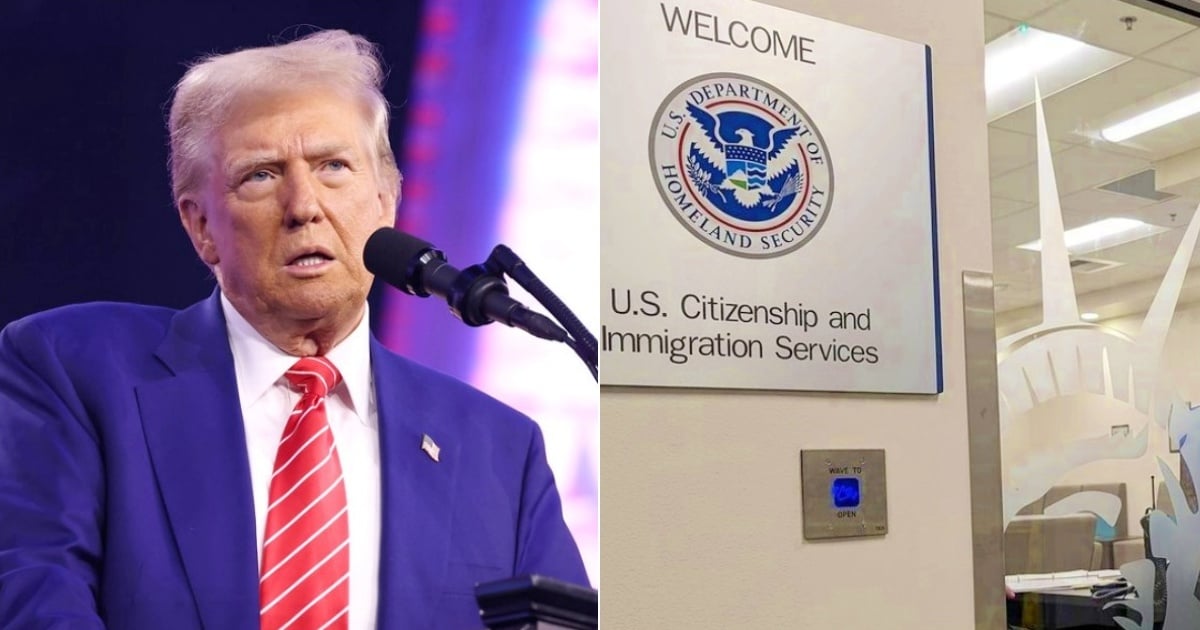The Trump administration has unveiled a new policy requiring all individuals residing illegally in the United States to register. According to a statement released by the Department of Homeland Security (DHS), those who fail to comply with this mandate may face fines, imprisonment, or both. This initiative, rooted in the Immigration and Nationality Act, is designed to monitor and regulate the presence of foreign nationals in the country.
Registration Process and Requirements
The DHS has specified that anyone in the U.S. without legal immigration status must provide fingerprints and a residential address. This requirement applies to individuals aged 14 and older. The agency has cited legal provisions supporting this process, which will become a formal obligation in the coming months.
The U.S. Citizenship and Immigration Services (USCIS) has announced that a specific form and procedure will be available for immigrants to complete their registration. Starting February 25, individuals must create an account on the USCIS website as the first step in the process.
Implications of Non-Compliance
The DHS statement emphasizes that failing to register will be considered a criminal offense with severe legal consequences. "Not registering as a foreign national is a crime that could lead to a fine, imprisonment, or both. This law has been overlooked for decades; this will change," the official document states.
Furthermore, immigrants who fail to report changes of address or do not leave the country when ordered may also face penalties. The U.S. government has indicated that the primary goal of this measure is to identify and prioritize the deportation of individuals with criminal records.
However, immigrant advocacy groups have raised concerns that this registry may be used to expand deportations beyond criminal cases.
Background and Context
This initiative aligns with President Donald Trump's campaign promises to carry out large-scale deportations and strengthen border control. On his first day in office, Trump signed several executive orders on immigration, including the creation of this registry.
These orders instructed the DHS to "immediately announce and publish information regarding the legal obligation of all unregistered foreign nationals in the United States to comply."
The National Immigration Law Center recalls that the last time the U.S. government implemented a widespread foreign national registry was with the Alien Registration Act of 1940, as reported by U.S. media. At that time, immigrants were required to register at local post offices. This process was used to identify "potential national security threats," classified as communists or subversives.
According to this organization, Trump's proposed registry follows a similar pattern and could facilitate the identification of immigrants for deportation. "Any attempt by the Trump administration to establish a registration process for non-citizens who previously failed to register would be used to identify and target individuals for detention and deportation," warned the group.
Documentation and Registration Details
The USCIS has published instructions on its website for those required to register:
- Foreign nationals aged 14 or older who have not been registered or fingerprinted when applying for a visa and remain in the country for more than 30 days must register before that period expires.
- Parents or guardians of minors under 14 who are in similar conditions must complete the registration on behalf of the minor.
- Any foreign national who turns 14 while in the United States must register within 30 days of their birthday.
- Once registration and fingerprinting are completed (except in exempt cases), the DHS will issue documentation that immigrants over 18 must carry at all times.
However, this registry does not grant any immigration status, work authorization, or additional benefits.
The announcement has sparked various reactions both inside and outside the United States. While government officials have defended the measure as a critical tool to enhance security and immigration control, activists and human rights groups have expressed fears that this database could facilitate mass deportations.
In recent days, the DHS launched a nationwide and international advertising campaign urging undocumented immigrants to "self-deport."
Understanding the Impact of the New Immigrant Registry
What are the requirements for immigrants to register under the new policy?
Immigrants must provide fingerprints and a residential address. Individuals aged 14 and older are required to comply with this registration.
What are the consequences of not registering?
Failure to register could result in fines, imprisonment, or both. The DHS emphasizes that non-compliance will be treated as a criminal offense.
Does this registration process grant any legal status?
No, the registration does not provide any immigration status, work authorization, or additional benefits.
Why is the Trump administration implementing this registry now?
The registry aligns with President Trump's campaign promises to enhance immigration enforcement and control the presence of illegal immigrants in the U.S.
